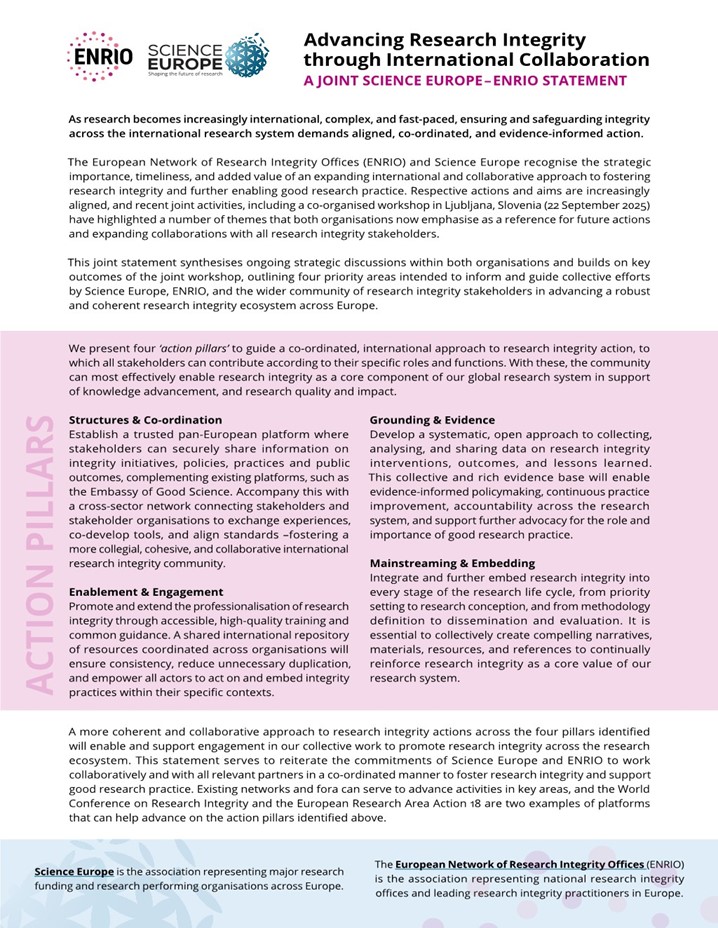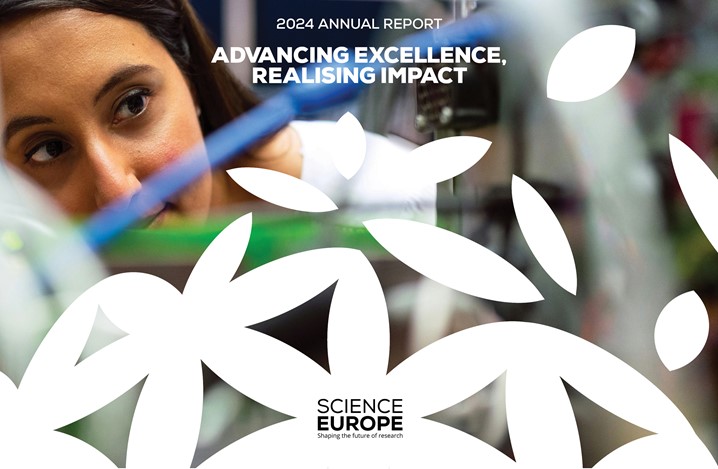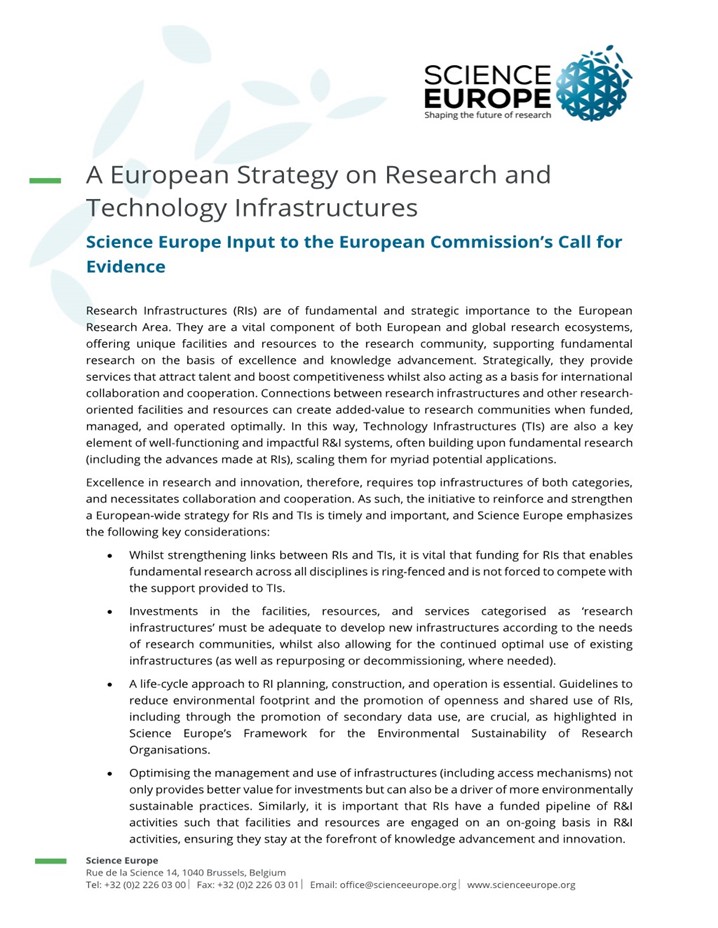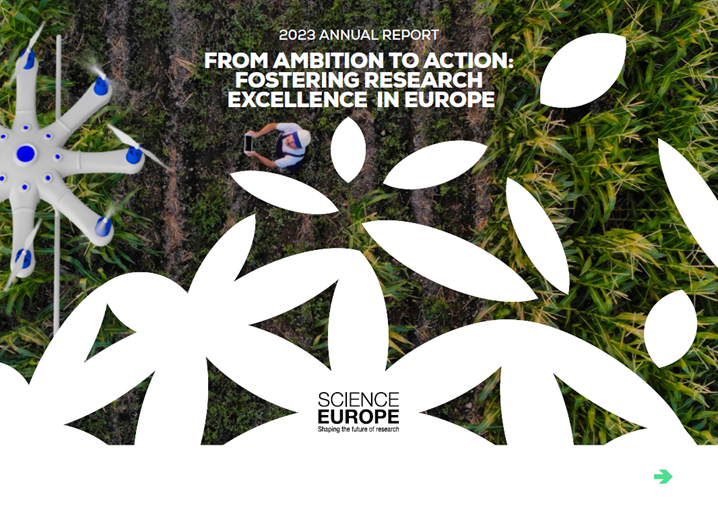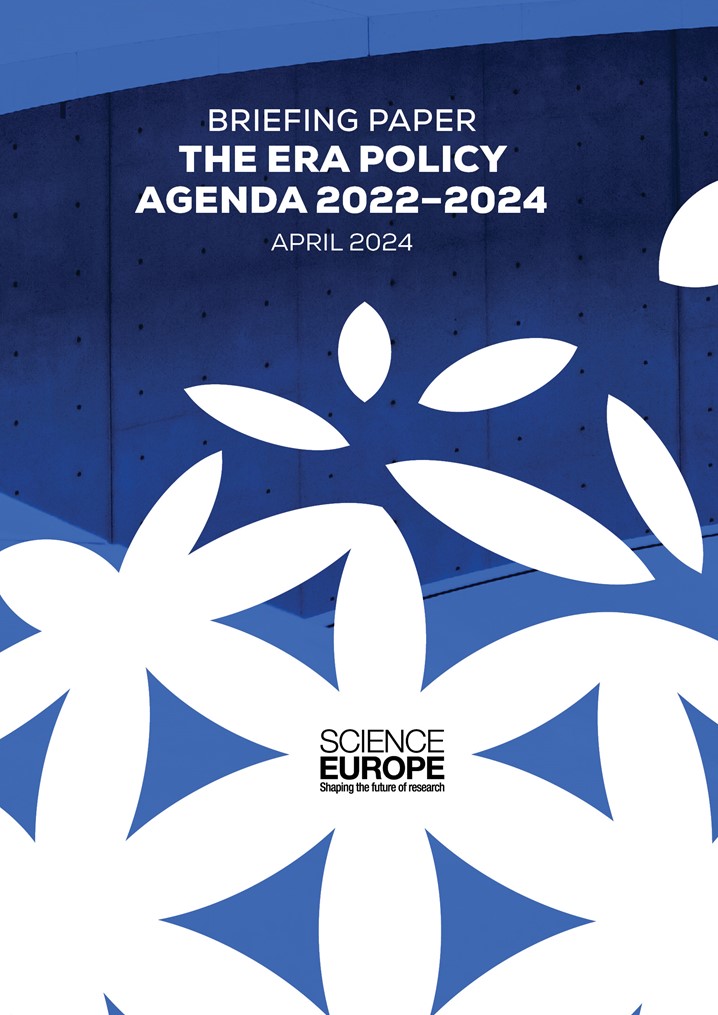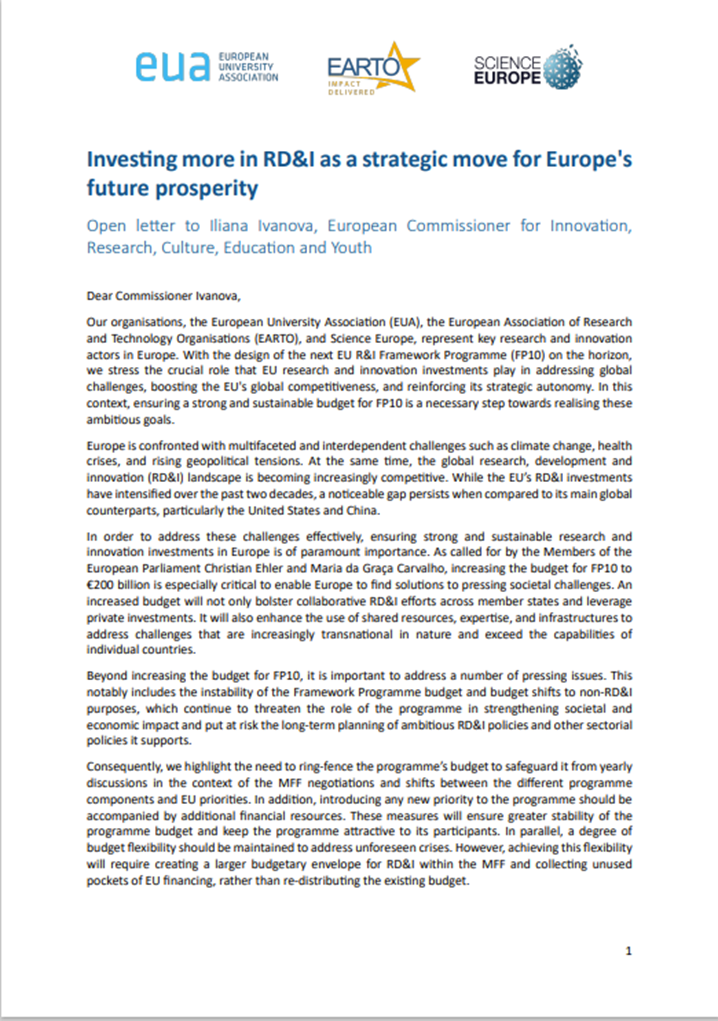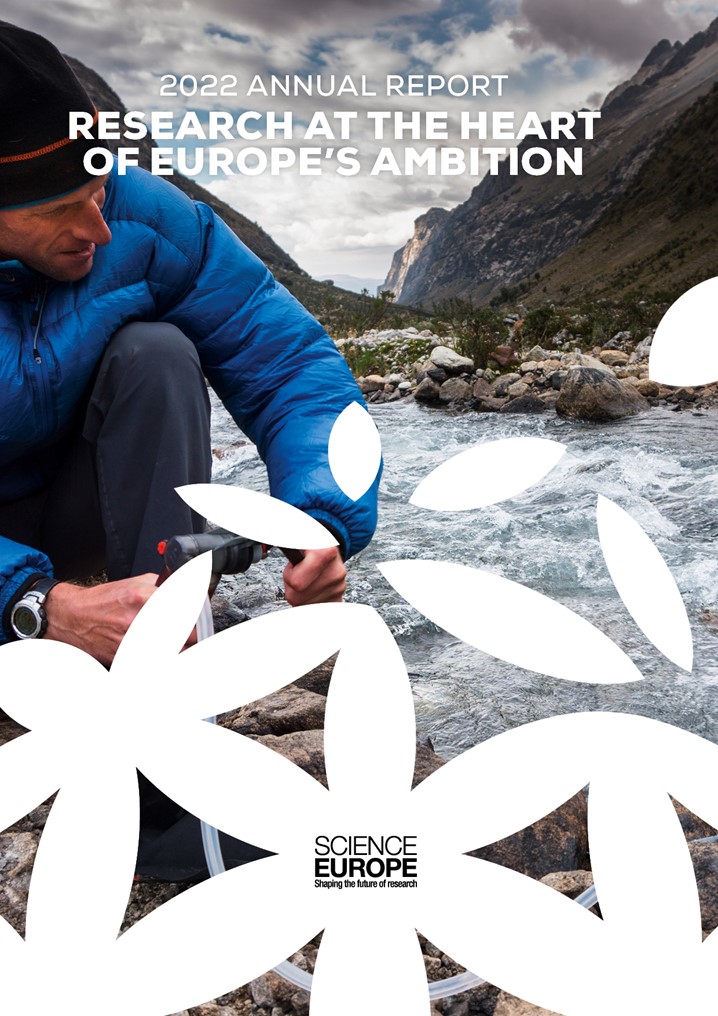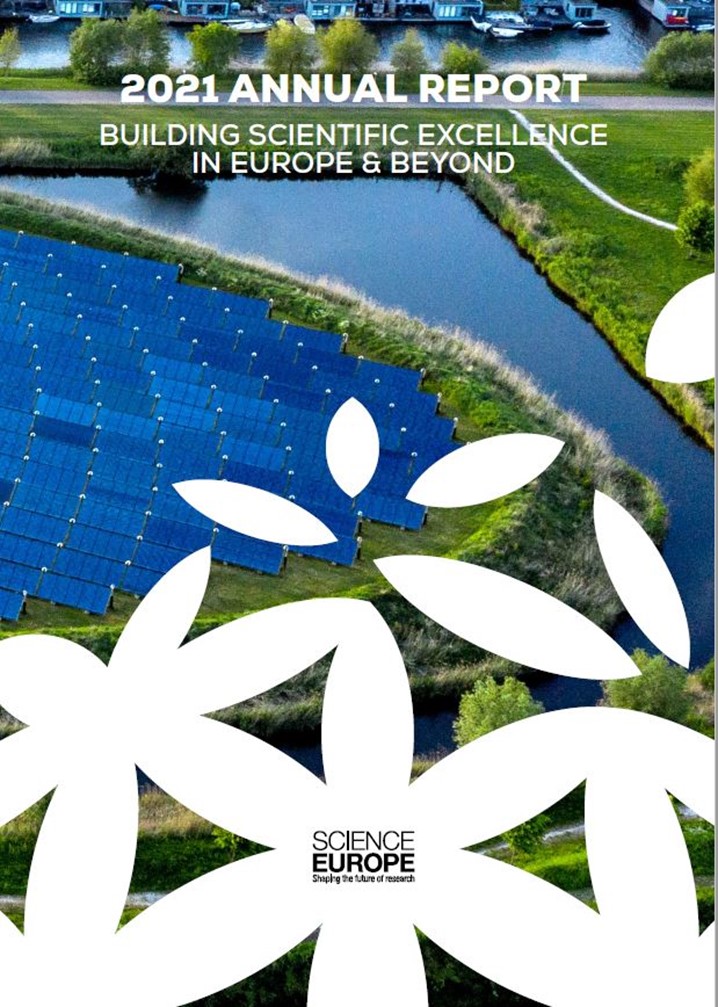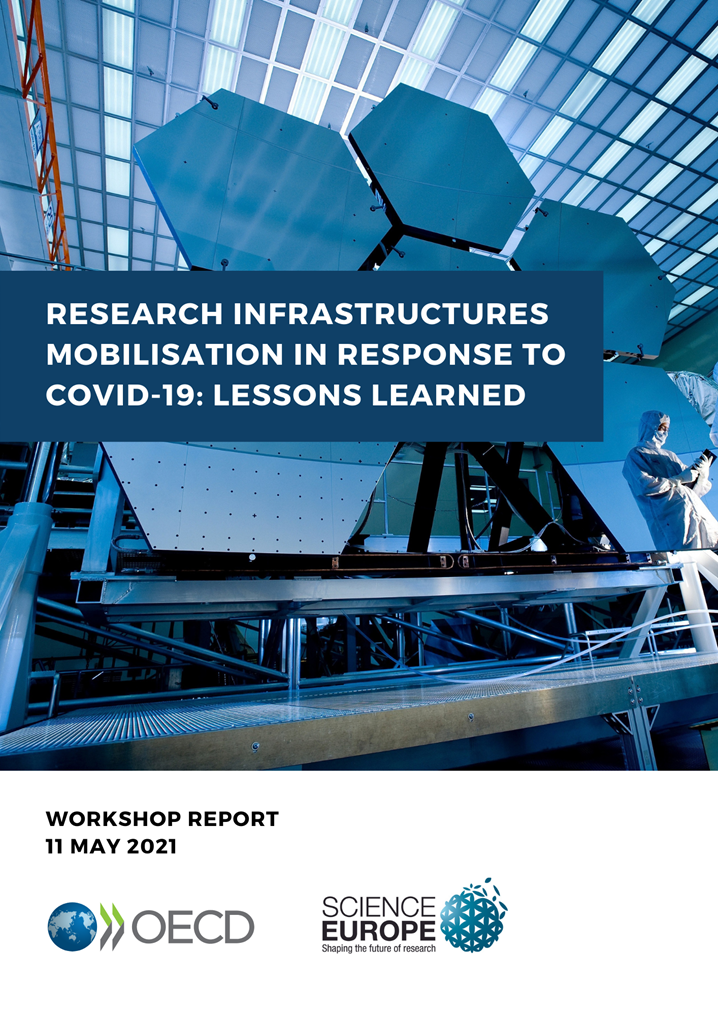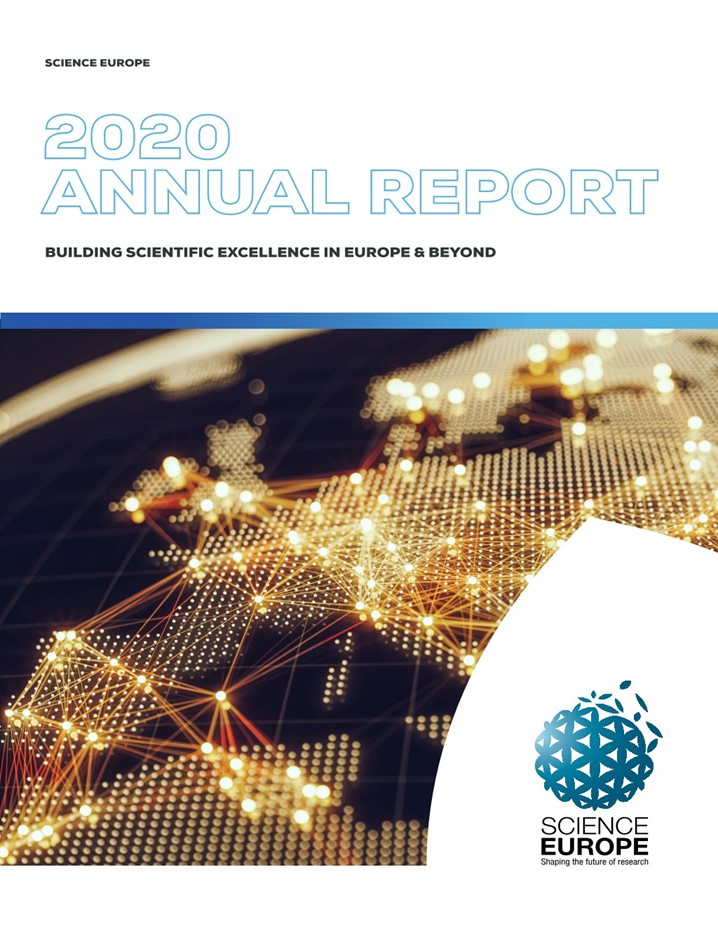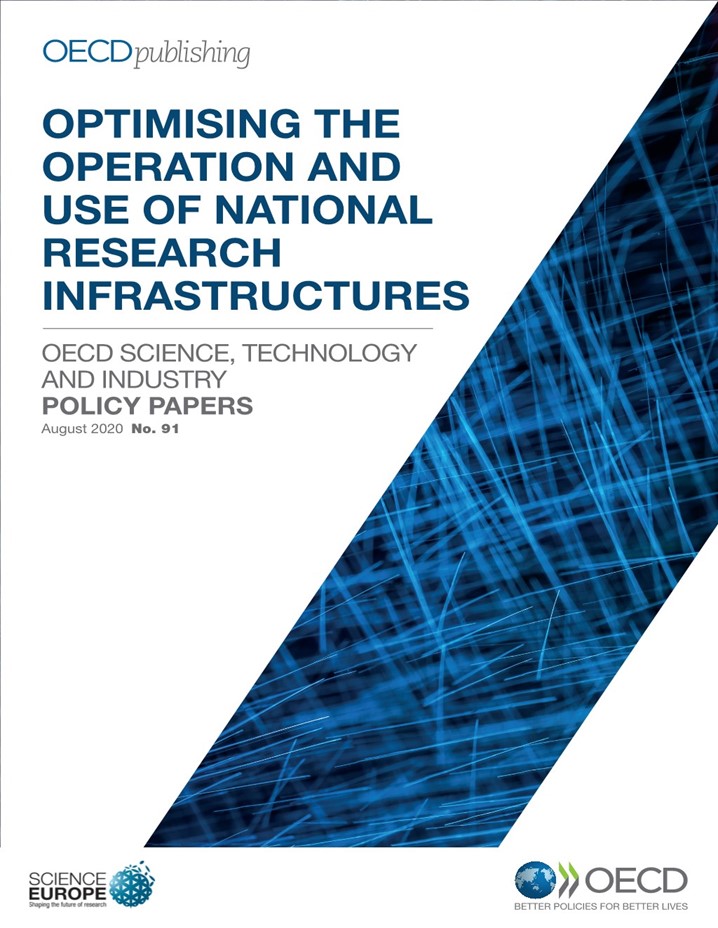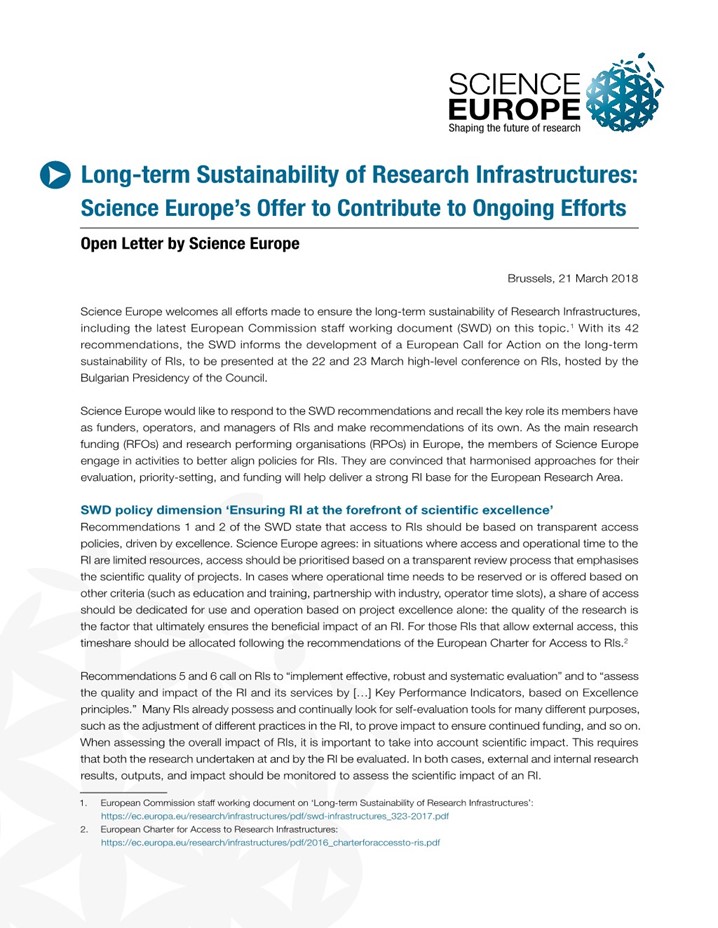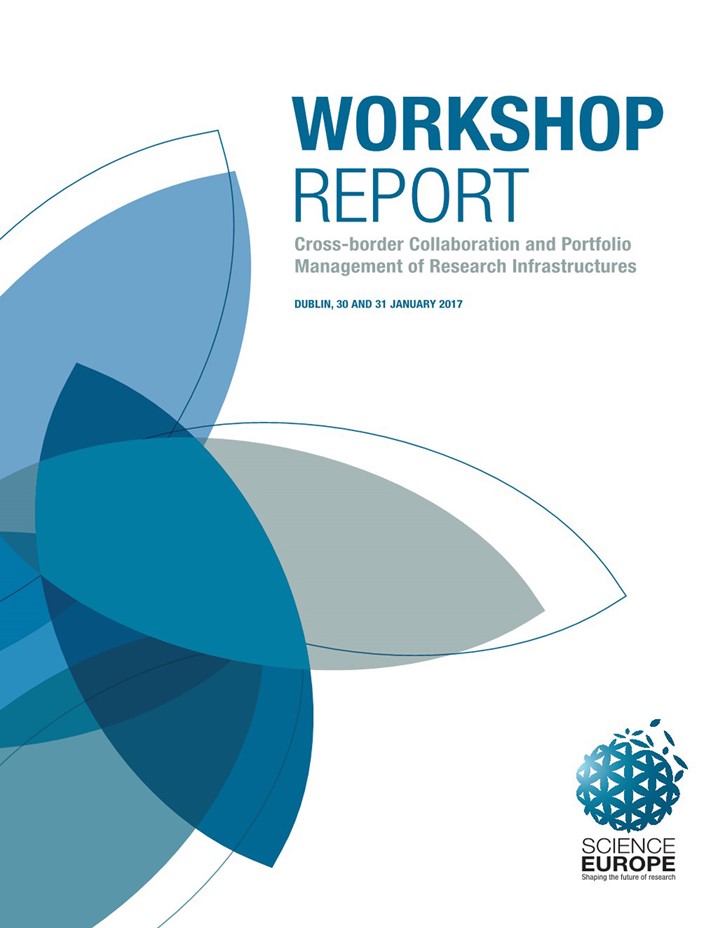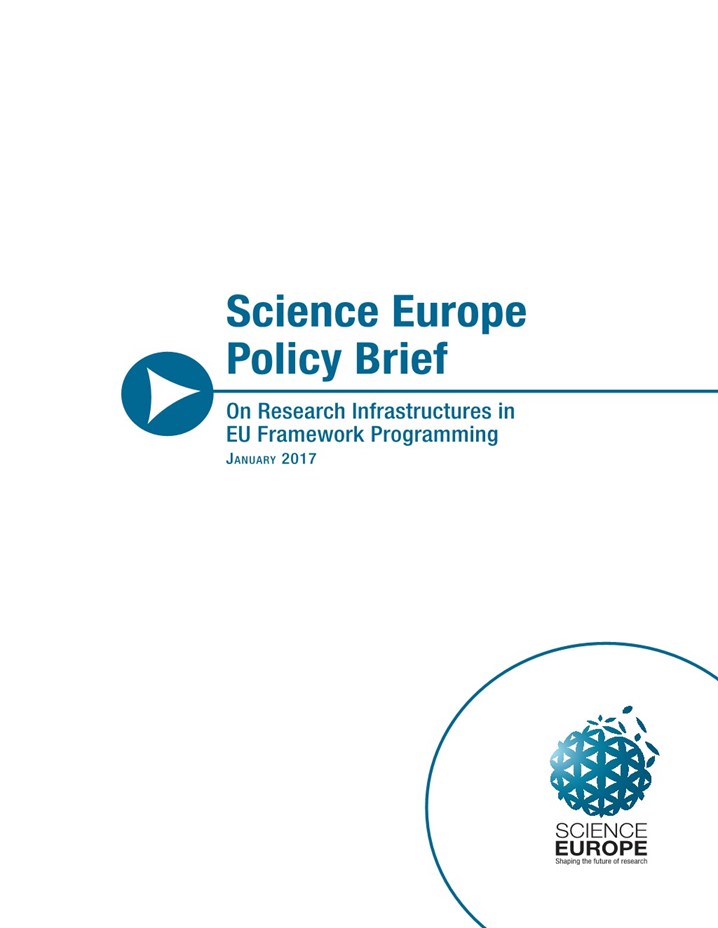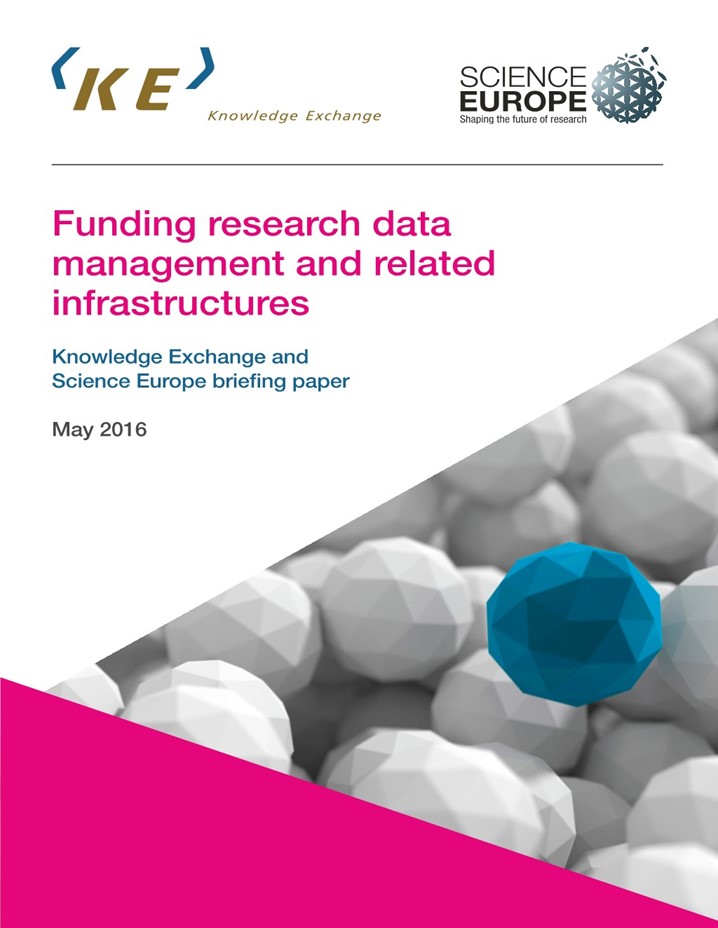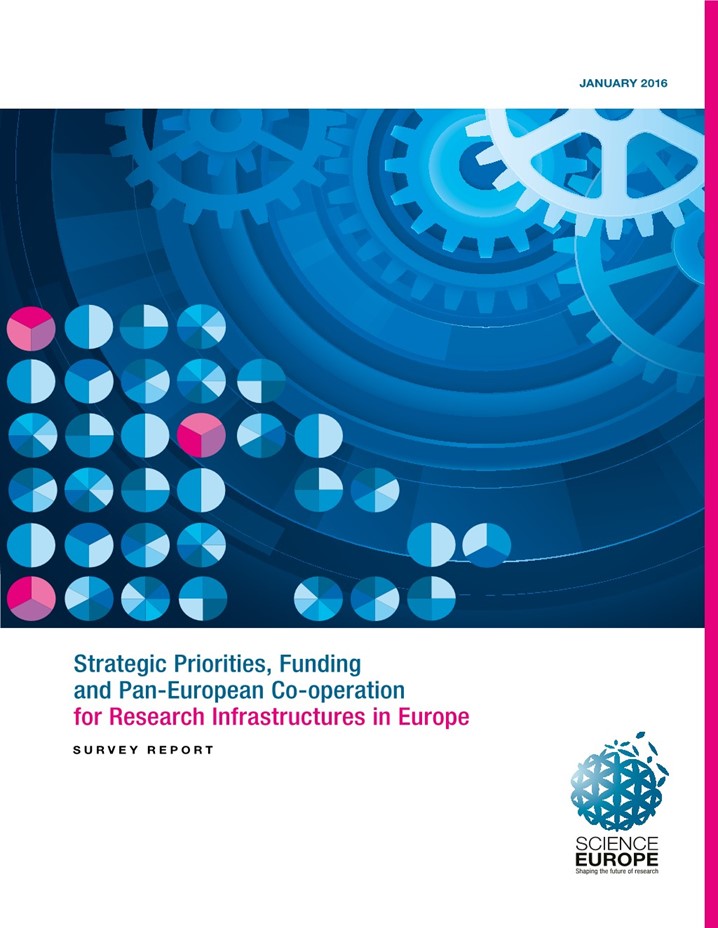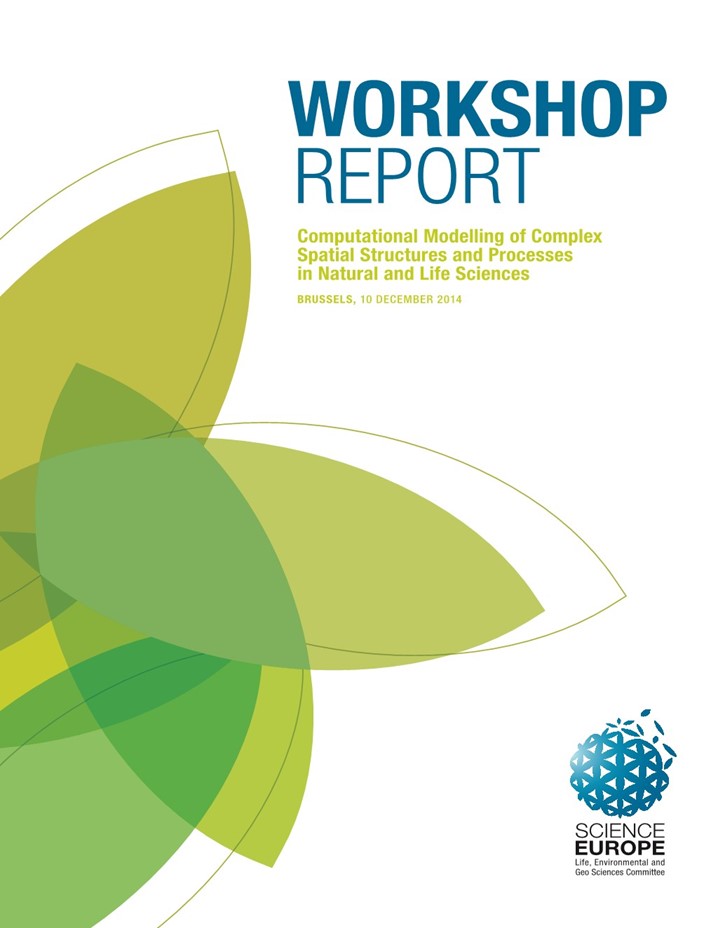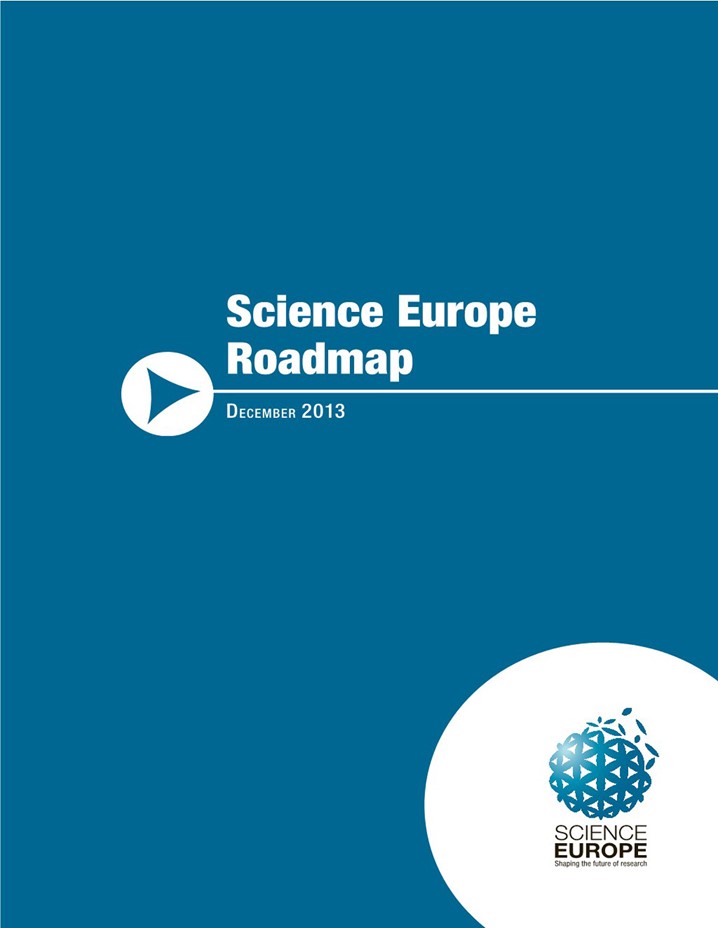Member-only content is available on this page. Please log in to view this content.

Our resources
Discover Science Europe’s comprehensive library of resources, including the most recent publications, briefings, and position statements.
18 resource(s) found
Advancing Research Integrity through International Collaboration
Science Europe and the European Network of Research Integrity Offices (ENRIO) launch a joint statement that reinforces their shared commitment to strengthening research integrity across Europe.
2024 Annual Report: Advancing Excellence, Realising Impact
Science Europe made excellent progress on its research policy priorities in 2024, delivering key outputs in various areas, including science communication, research assessment, open science, the sustainability of research, international collaboration, and equality, diversity, and inclusion.
Input to Call for Evidence on a Strategy for RIs and TIs
In May, Science Europe responded to a Call for Evidence by the European Commission on a European Strategy on Research and Technology Infrastructures. The response outlines a number of considerations to be taken towards these infrastructures, which are of fundamental and strategic importance to the ERA.
From Ambition To Action: Fostering Research Excellence In Europe - 2023 Annual Report
2023 proved to be another landmark year for Science Europe: building on the achievements of the previous year and setting the direction for new approaches in vital areas of research policy.
Briefing on the ERA Policy Agenda
This briefing on the ERA Policy Agenda presents actions and advocacy points from Science Europe on the ERA Actions that it contributes to.
Research at the Heart of Europe’s Ambition – 2022 Annual Report
In 2022, Science Europe made significant contributions in various areas, including research culture, research assessment, open science, EU framework programmes, the green and digital transition, and science communication.
Science Europe 2021 Annual Report
For Science Europe, 2021 was a very important year: the association celebrated its 10th year of existence. Founded in 2011, it has grown into a respected and influential voice in the European research policy debate. Moreover, we published a new Strategy Plan for 2021–2026, which maps our collective objectives and sets a specific yet flexible action framework over the next five years.
Research Infrastructures mobilisation in response to COVID-19: lessons learned
This report provides a summary of the virtual workshop organised by OECD Global Science Forum and Science Europe in May 2021 and set up as a satellite event of the International Conference on Research Infrastructures (ICRI 2021).
2020 Annual Report
The year 2020 saw a global pandemic attest to the value of science. In the race for COVID-19 treatments and vaccines, Science Europe’s Member Organisations were at the forefront of the global response and our association became more relevant and important than ever.
SE-OECD Policy Paper on Optimising the Operation and Use of National Research Infrastructures
Science Europe and the OECD Global Science Forum teamed up to identify ways to optimise the operation and use of research infrastructures at national level.
Long-term Sustainability of Research Infrastructures: Science Europe’s Offer to Contribute to Ongoing Efforts
Science Europe welcomes all efforts made to ensure the long-term sustainability of research infrastructures. Released prior to the high-level conference on research infrastructures by the Bulgarian Presidency of the Council, this Open Letter responds to the European Commission’s Staff Working Document on their sustainability. It makes a number of recommendations, based on the key role of Science Europe’s members as funders, operators, and managers of infrastructures.
Cross-border Collaboration and Portfolio Management of Research Infrastructures
This report explores the challenges facing research funding and performing organisations to design and manage balanced Research Infrastructure (RI) portfolios and design effective cross-border collaborations when setting up and running joint RIs. Discussions with a broad range of stakeholders took place at a dedicated workshop co-hosted by Science Foundation Ireland and the Health Research Board.
Policy Brief on Research Infrastructures in EU Framework Programming
Research Infrastructures (RIs) are of utmost importance for Europe’s global competitiveness and this paper puts forward the case of how the focus on RIs in Horizon 2020 should be enhanced.
Briefing Paper on Funding Research Data Management and Related Infrastructures
This joint briefing paper with Knowledge Exchange informs the discussion on the funding of Research Data Management (RDM) and related infrastructures in Europe, helps raise awareness of the current challenges, and communicates opportunities for co-ordinated action to relevant stakeholders. The paper highlights that the funding of Research Data Infrastructures, enabling RDM, comes from a great variety of sources and institutions that have different responsibilities and that operate at local, national, and international levels.
Strategic Priorities, Funding and Pan-European Co-operation for Research Infrastructures in Europe
The demand for Research Infrastructures is high throughout all fields of science. However, the available funds for capital investment and running costs are generally limited and do not nearly meet the demand. Effective allocation of available funds and effective operation of facilities is therefore important in order to serve the scientific community in the best possible way.
Workshop report: Computational Modelling of Complex Spatial Structures and Processes in Natural and Life Sciences
In recent years scientific research has changed markedly. High throughput technologies have resulted in the generation and accumulation of unprecedented quantities of data, which can be collected, analysed and interpreted through advances in computational science. This, in turn, has led to rapid progress in the development of computational models that can represent natural phenomena across the range of scales, from the level of atoms and molecules to the structure and evolution of galaxies. Such models allow researchers to test and develop new ideas; they can provide new insights into the behaviour of systems under different conditions that would be difficult to test directly through experiment, and they can be used to predict how a system will react to changing circumstances. With computer modelling becoming an increasingly important tool for researchers, the Science Europe Scientific Committee for Life, Environmental and Geo Sciences organised a workshop to explore how different scientific disciplines use computational modelling and simulations of complex structures in space and time.
Science Europe Roadmap
The Roadmap, approved by the Science Europe General Assembly in November 2013, is Science Europe’s action plan to contribute to the elements of a successful research system. It acts as a framework for voluntary collective activity, providing a long-term strategy for the association. The ‘Priority Action Areas’ are those in which Science Europe members believe that there is a potential to achieve tangible and substantive progress, and where they can add real value by working together.

